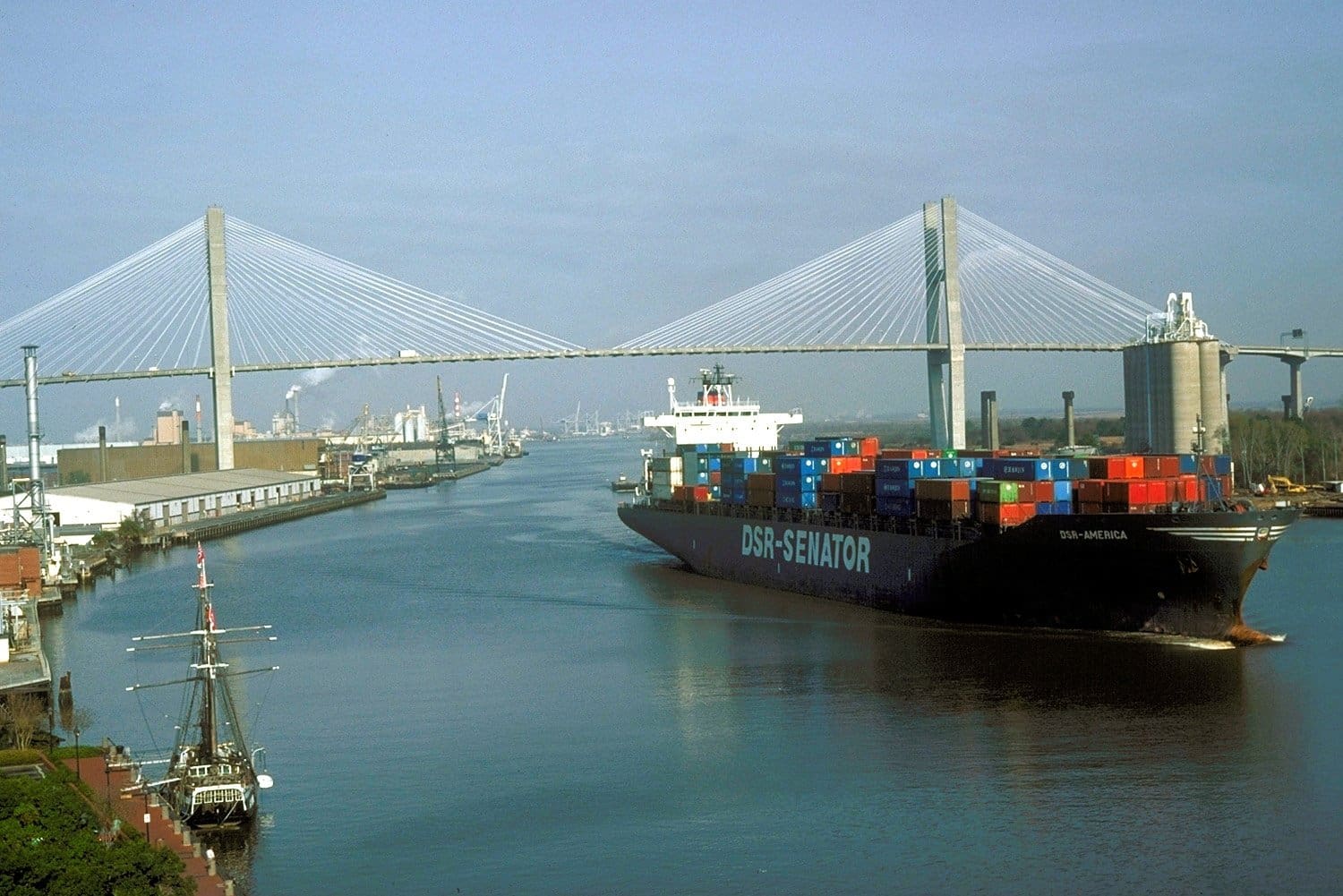Even here at the cargo ship Port of Savannah, few people understand just how dependent our modern society is on the seaborne movement of goods. The chances are better than fair that you are looking at this article on a device that was manufactured in another country, which in turn required a supply of raw materials brought in from some other country. The factory in which the device was built was powered by energy resources ultimately dependent on imports from yet another country. At any given moment, the sea is alive with countless ships moving cargo all over the planet.
 There are many different types of cargo ships at sea, and they each perform different functions much as there are different types of cars of the road, depending on what the owner’s needs are. When it comes to the different types of cargo ship Port of Savannah officials see, there is really no one type that dominates. The Port of Savannah accommodates all manners of shipping.
There are many different types of cargo ships at sea, and they each perform different functions much as there are different types of cars of the road, depending on what the owner’s needs are. When it comes to the different types of cargo ship Port of Savannah officials see, there is really no one type that dominates. The Port of Savannah accommodates all manners of shipping.
Load Up the Goods
The vast container ships loaded with mountains of rectangular shipping containers are familiar to most people, as are the giant tankers of the ocean known as the VLCCs (Very Large Crude Carriers) and ULCCs (Ultra Large Crude Carriers). Also fairly well-known are the uniquely-named Ro-Ro vessels, which stands for “Roll On – Roll Off”, a description of how their cargo (trucks and autos) are put on board and landed at their port of destination.
A lot of raw materials need to be moved from one continent to another; this is the bailiwick of bulk vessels and break bulk vessels. Bulk vessels are simply giant floating bins filled with materials such as coal, sulphur, various metal ores, or grains, like wheat or corn. Break bulk vessels generally carry bulk quantities of basic manufactured goods that have been broken down into transportable loads, such as bags of concrete, bunks of sawn lumber, or pallets of finished products, like buckets of paint or industrial chemicals.
Knowing the type of ship is only part of the puzzle, however, since every type of cargo ship is built in various sizes, or classes, that are specially designed to service different trade routes based on how much of a quantity normally needs to be transported to that particular area and how elaborate or primitive the docking facilities at the port of call are.
Cargo Ship: Size Matters
Oceanic shipping routes are also constrained by various checkpoints which restrict the size of vessels which may pass through them. Handy and Handymax sized ships can generally go anywhere in the world and pass through all of the known checkpoints with ease. The first major limiters for ship size are the so-called Seawaymax and Panamax ratings– which are the maximum sizes of vessel that, respectively, can go through the Saint Lawrence Seaway into Canada and those that can traverse the Panama Canal.
The next largest size are tankers known as Aframax vessels, which refers to a somewhat-archaic ship classification chart developed by the Shell Oil Company in the 1950s. What Aframax means in practice is that this is the largest size of tanker which is rated for service at virtually any port in the world– large or small.
Above this are the two categories of Suezmax (small enough to fit through Egypt’s Suez Canal) and Malaccamax, which is for vessels that can fit through the Straits of Malacca that lead from the South China Sea to the Indian Ocean. In the latter case, the Malaccamax category includes all but the very largest vessels at sea.
There is one final category of vessels which cannot go through any of the above high seas chokepoints in Panama, Egypt, or Singapore (Straits of Malacca). These are known as Capesize vessels, which means that they have to take the long way round the world and go either by the Cape of Good Hope at the southern tip of Africa or the Straits of Magellan at the southern end of the Americas.
Regardless of their size, the cargo ship Port of Savannah can handle them all. Let our experts assist with your logistical needs; our transportation, port drayage and warehousing & distribution services are unparalleled.
{{cta(‘ef03ec79-80a9-431d-a1e9-775ead2f6564′,’justifycenter’)}}
